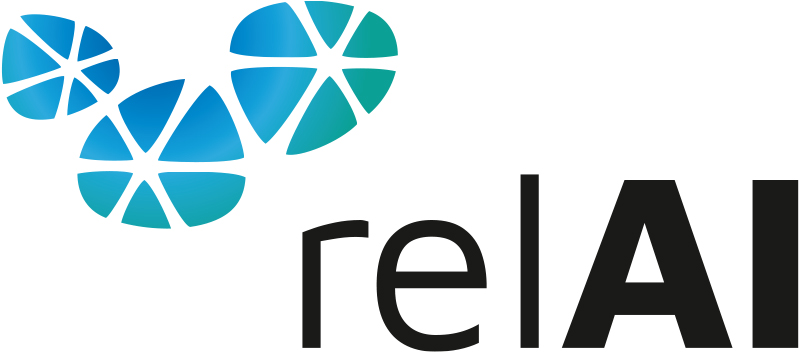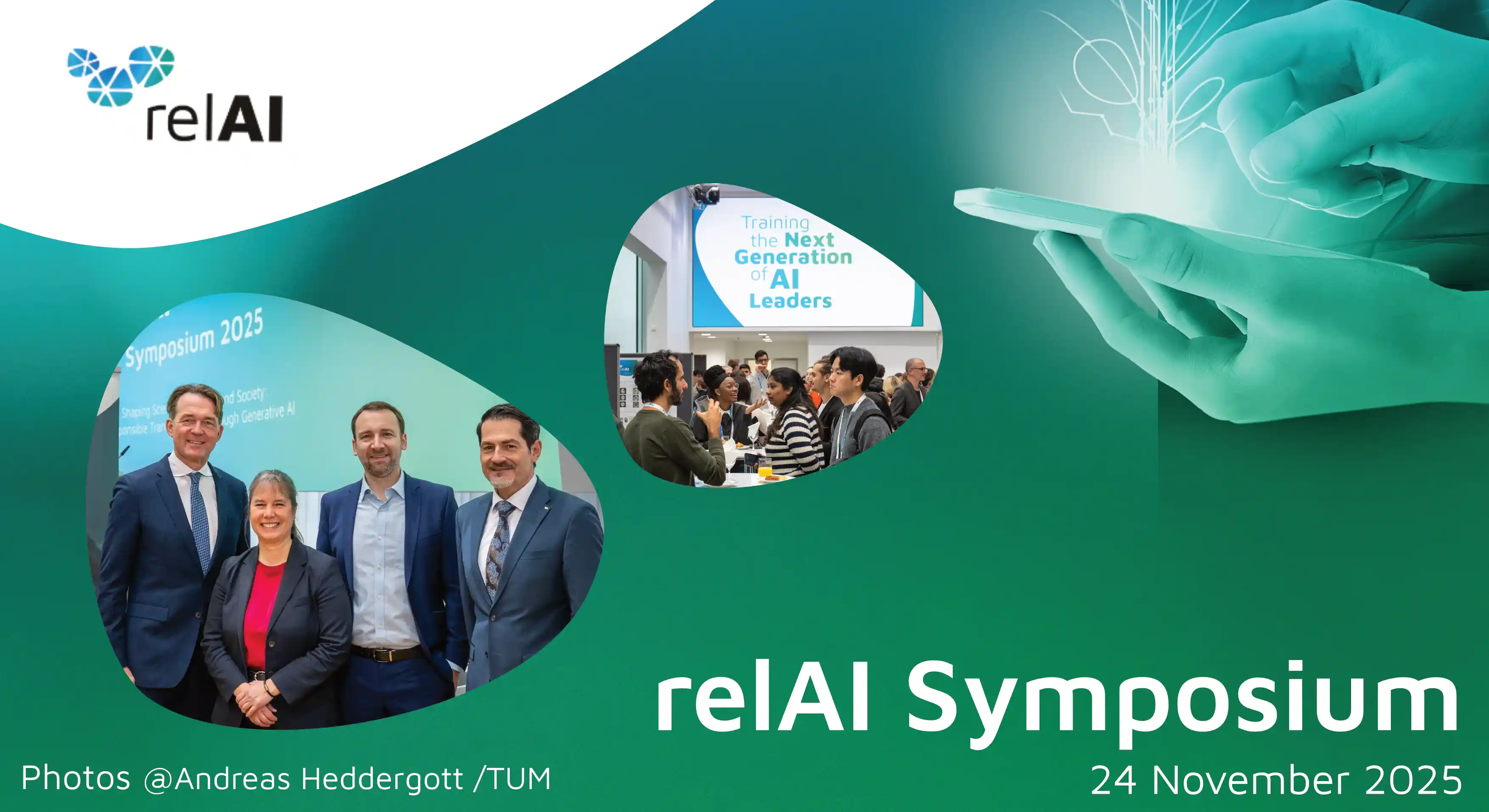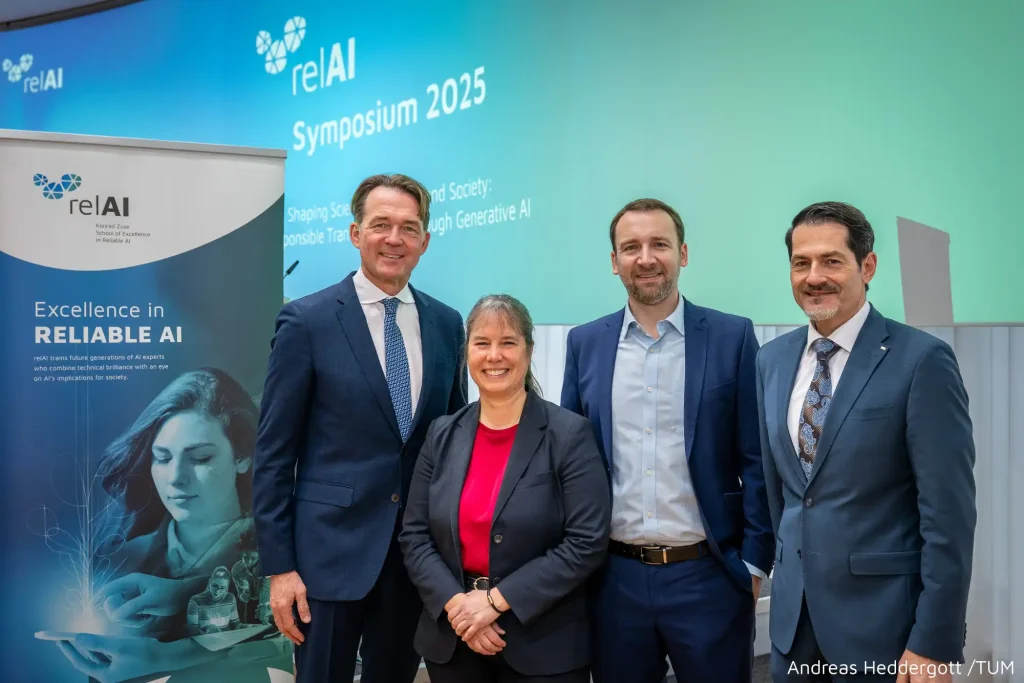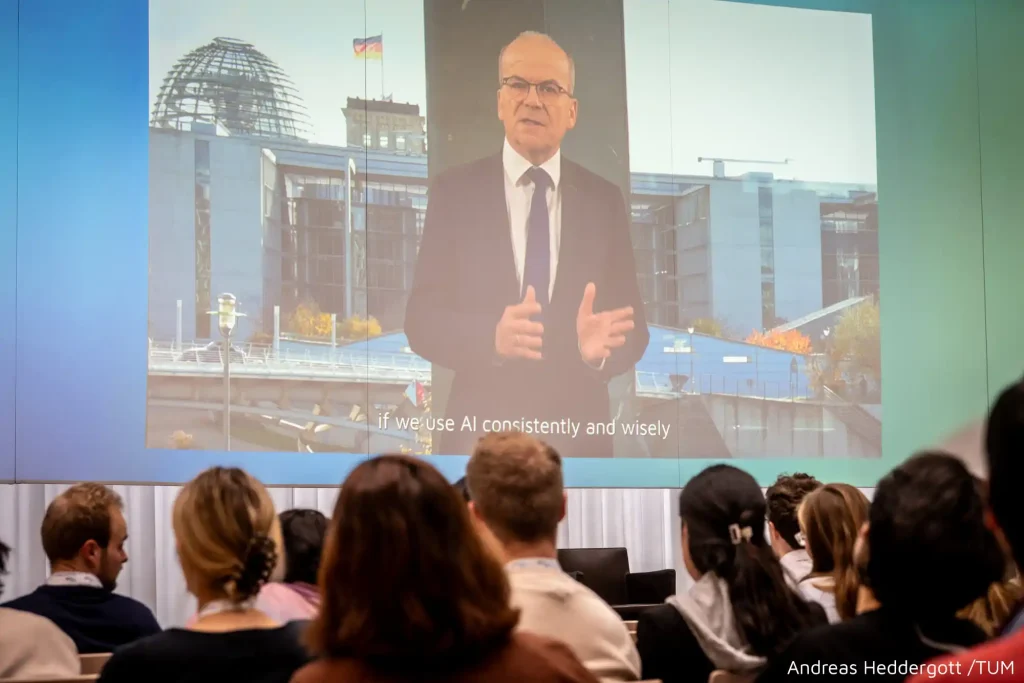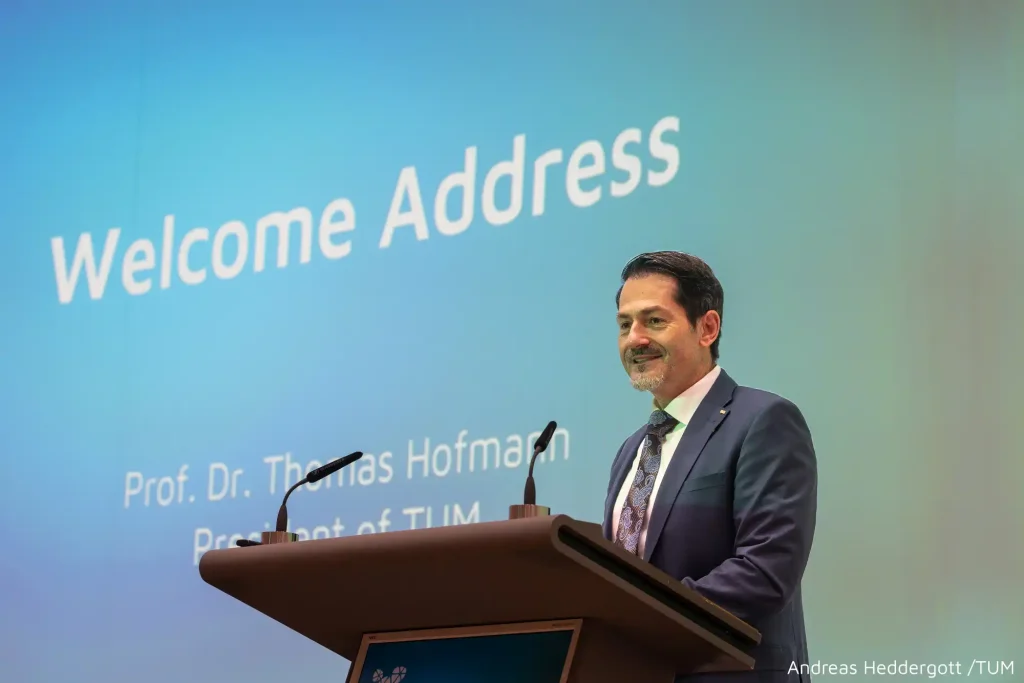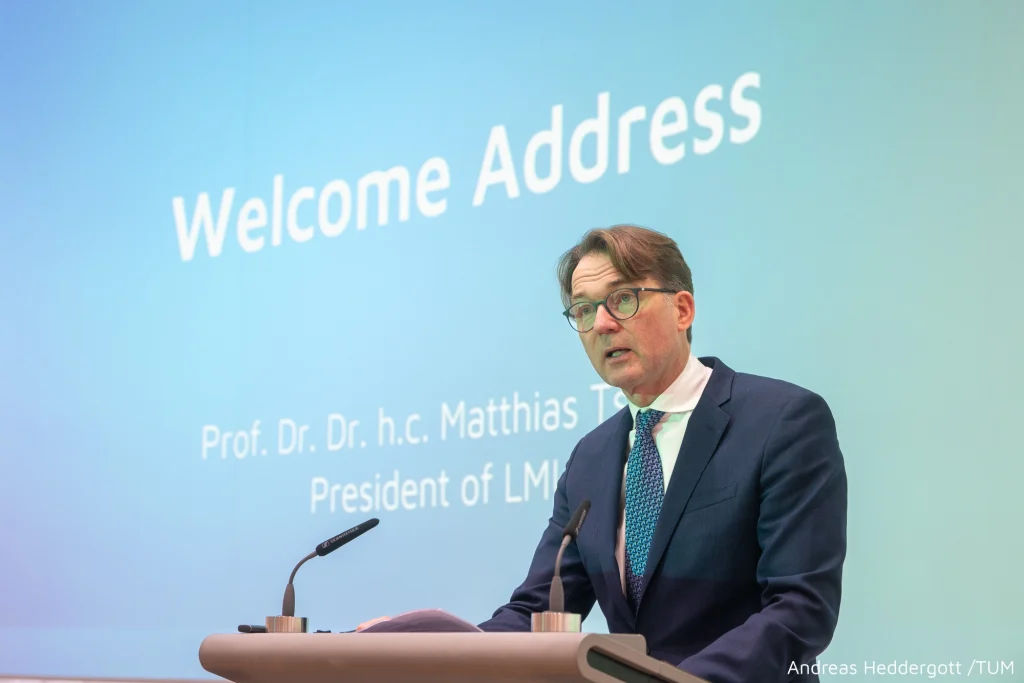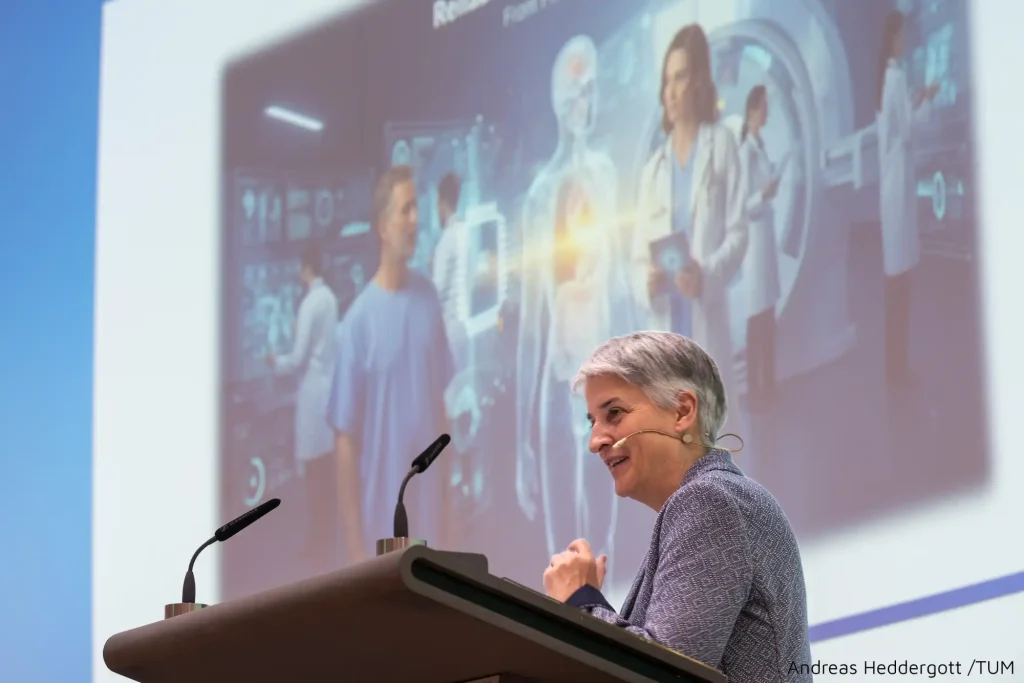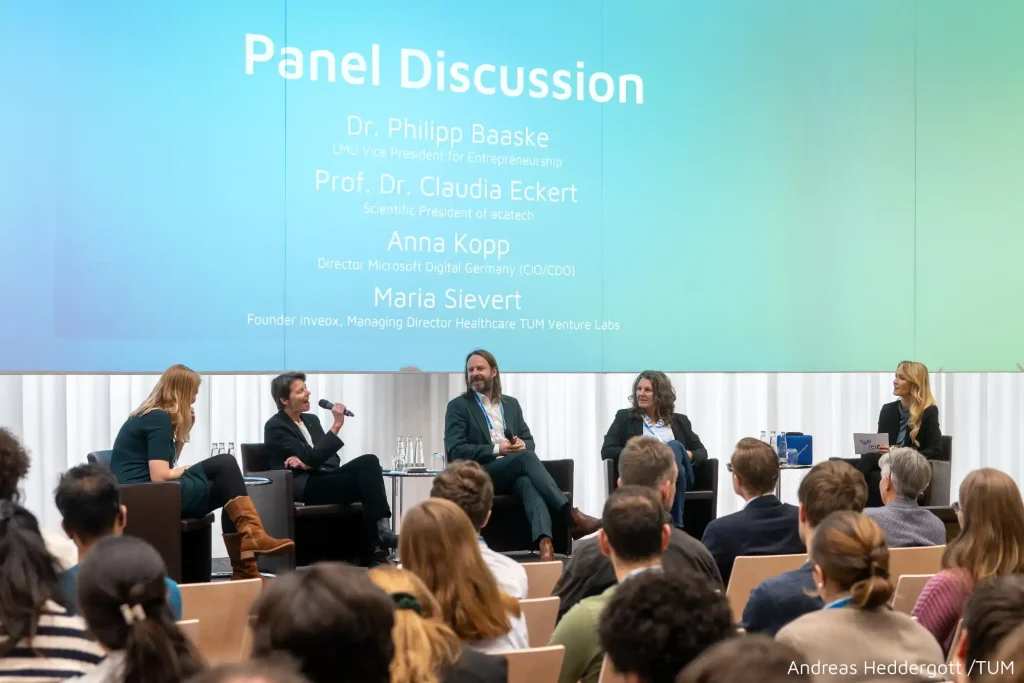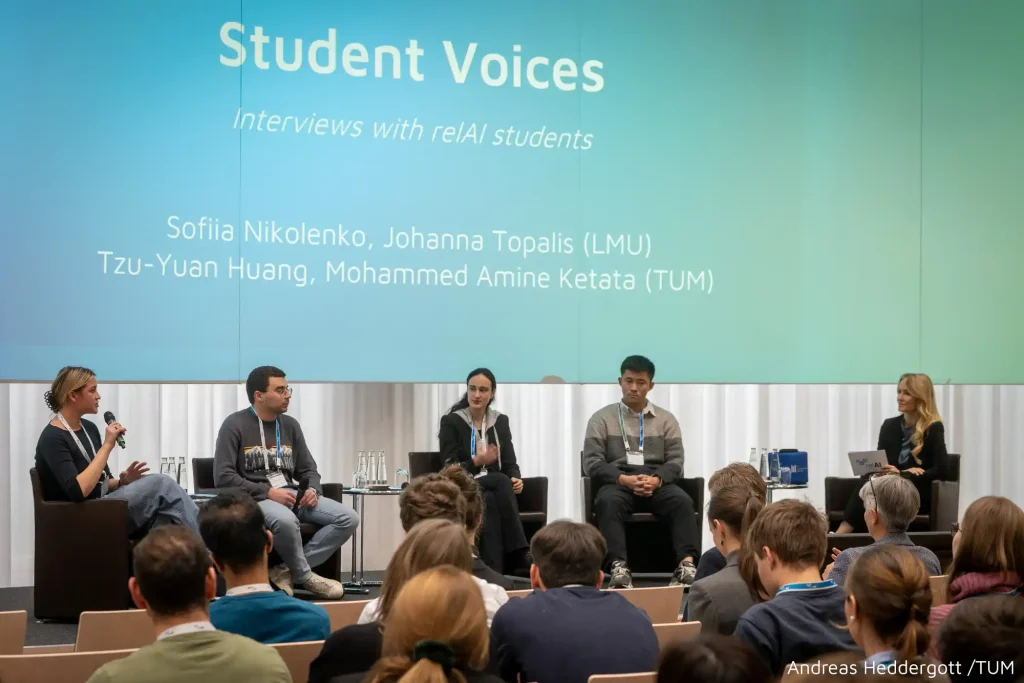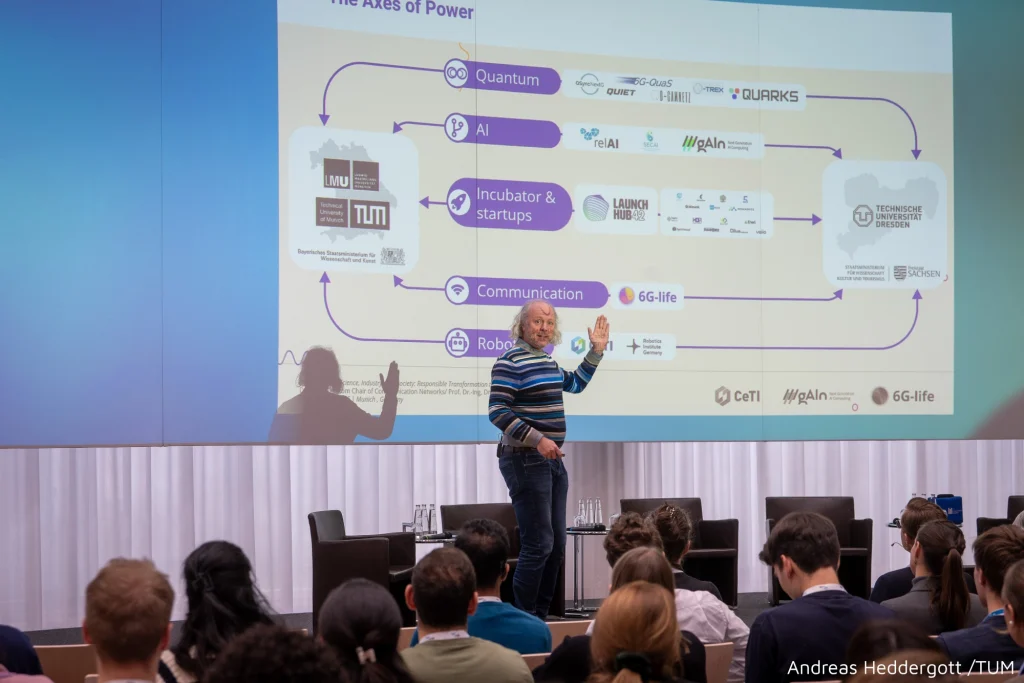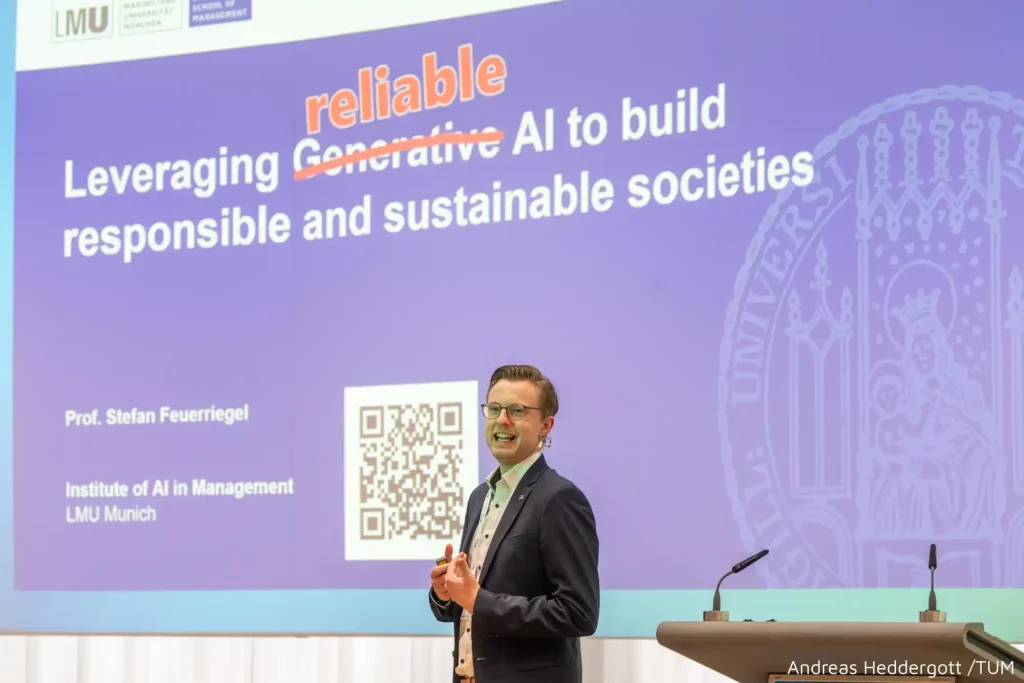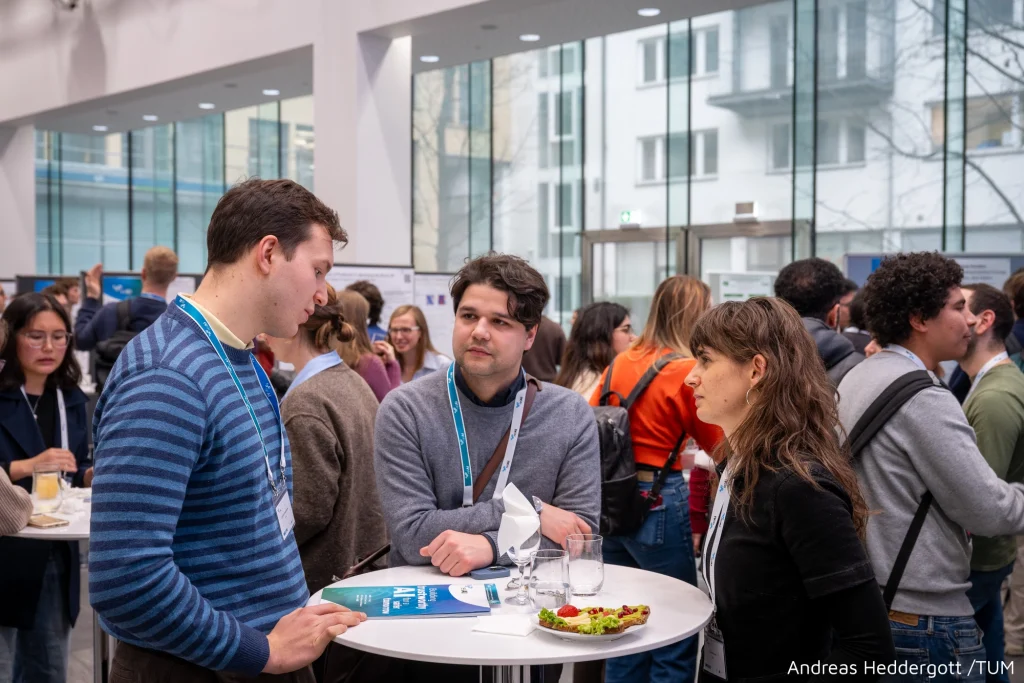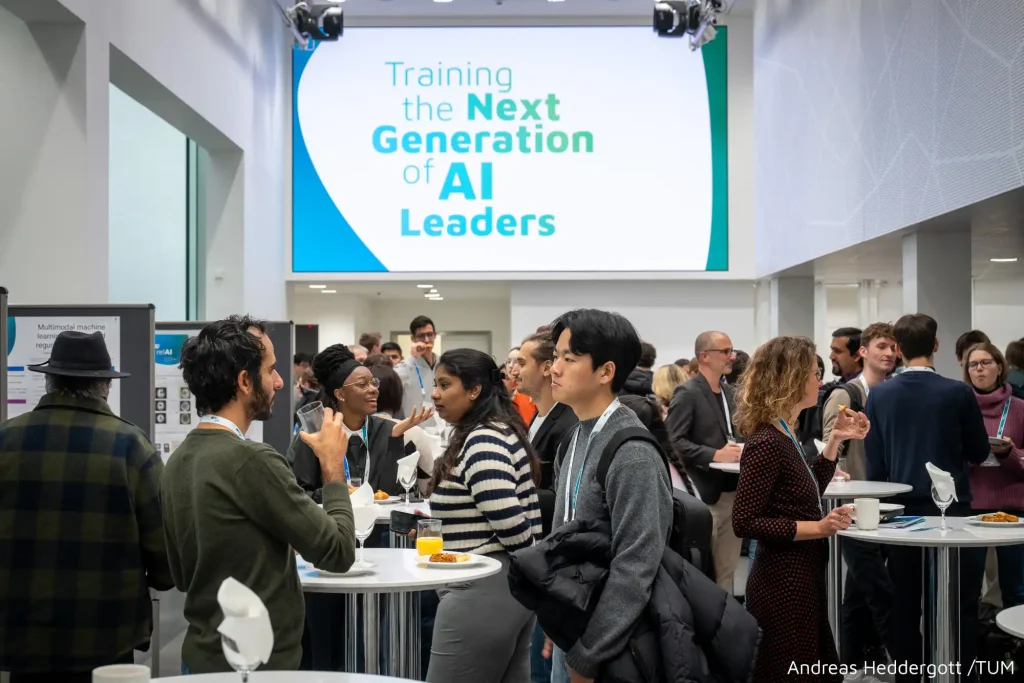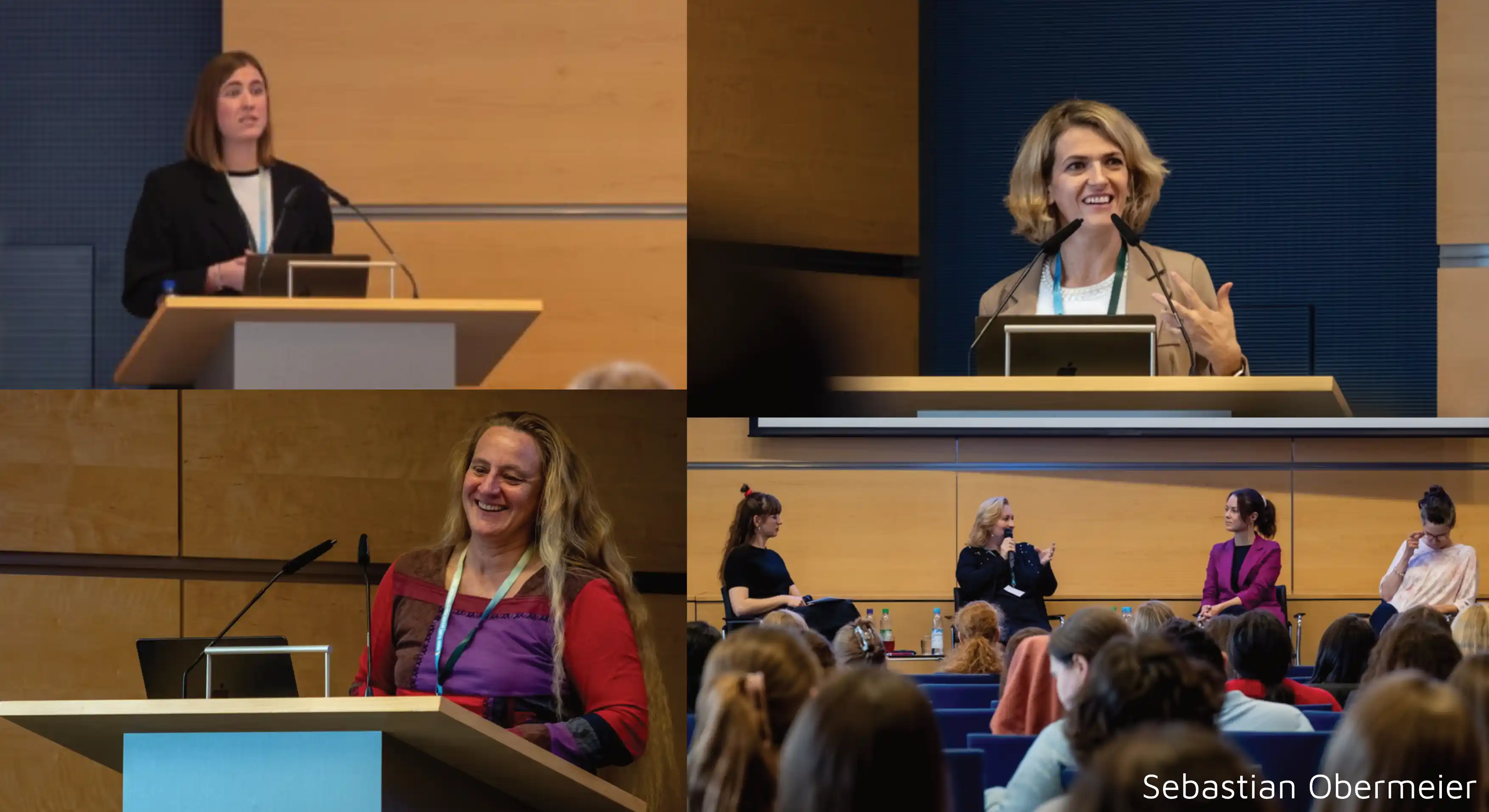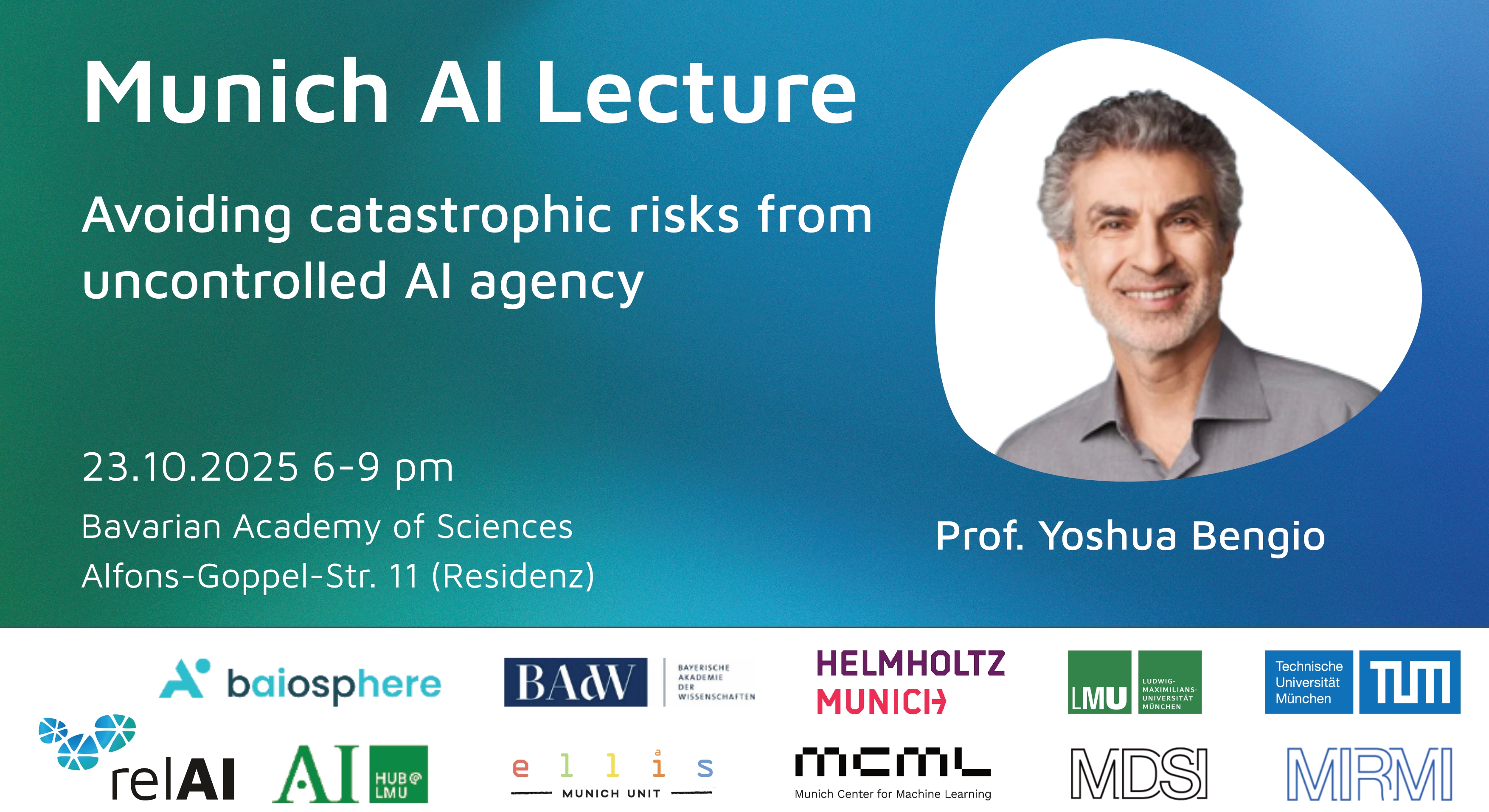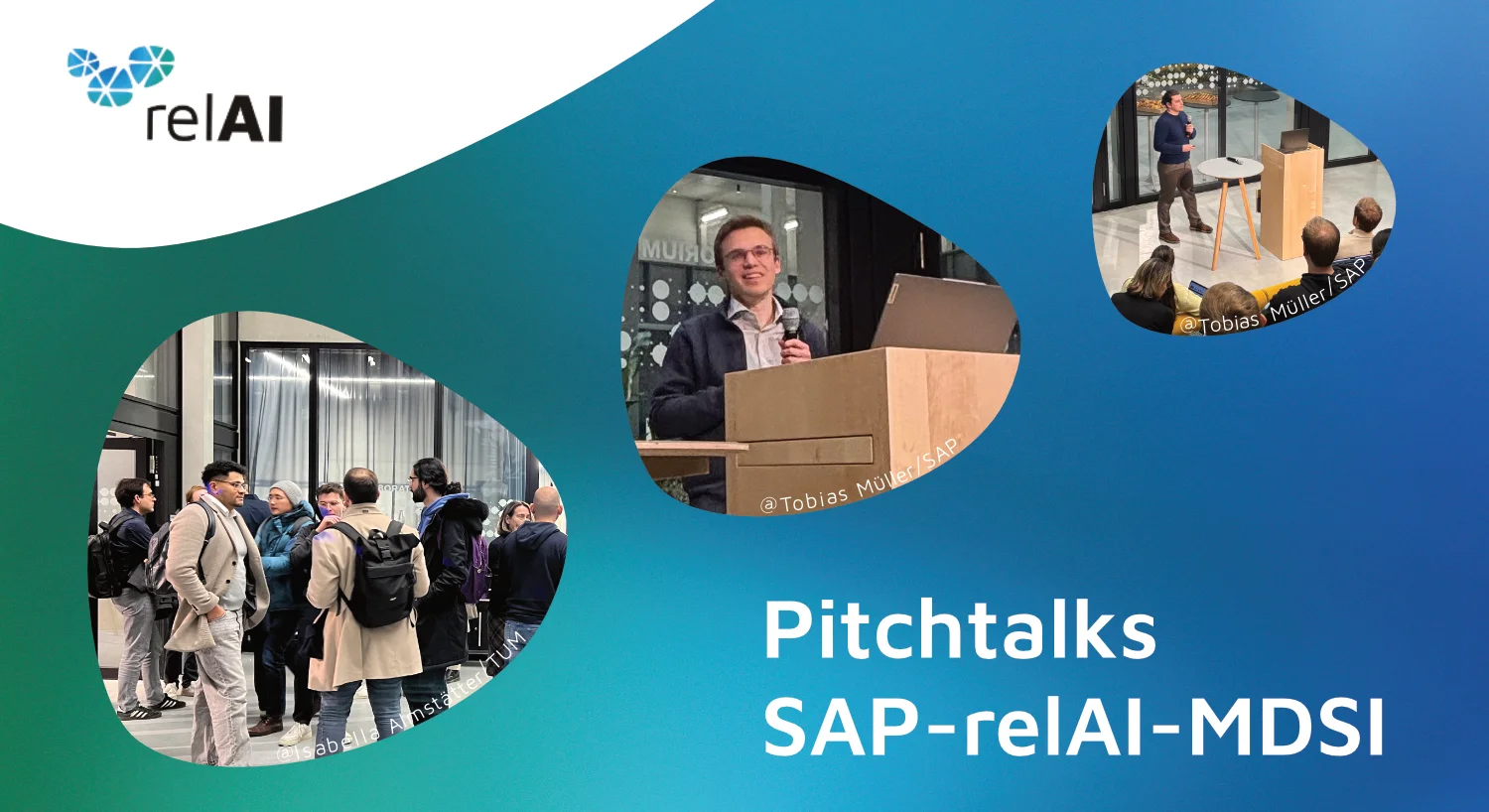
On January 20, 2026, researchers from relAI, MDSI and our industry partner SAP gathered for a pitchtalk session at the SAP Labs Munich Campus in Garching. In an interactive setup, participants from the three organizations exchanged research insights and explored ideas for future collaborations.
The afternoon opened with short welcome words from representatives of SAP (Dr. Tobias Müller), MDSI (Sylvia Kortüm) and relAI (Dr. Mónica Campillos). The following pitchtalks covered a wide range of topics relevant to AI and Data Science, spanning methodological approaches to practical research resources.
Pitchtalk Session
The talks introduced methodologies and applications across various research fields, from uncertainty modeling to personalized medicine and research data infrastructure.
Max Beier, a relAI PhD student, discussed the advantage of using linear-operator methods in dynamical systems. By focusing on linear operators, his approach supports optimal control, scalable optimization algorithms, and reliable forecasting across time scales ranging from milliseconds to days. He showed that this methodology allows efficient learning of system behavior, modeling of trajectory distributions, and generation of coherent sequences, addressing current limitations in decision‑making models for complex dynamical environments.
Parastoo Pashmchi, an industrial PhD student at SAP, introduced an efficient algorithm to handle missing data, a common challenge in AI projects. She presented an ML‑based imputation method that preserves the original data distribution by sampling from the conditional distribution of nearest neighbors, overcoming the limitations of common techniques like kNNImputer. By enabling uncertainty quantification and multiple imputations, her approach improves the reliability of predictive models such as SAP’s green energy forecasting use case, where missing solar production data can significantly undermine model accuracy.
Mario Picciani, an MDSI PhD student, highlighted recent developments and applications of ProteomicsDB, a proteomics resource established in 2012 through a collaboration between MDSI Core Member Prof. Bernhard Küster and SAP. ProteomicsDB is a powerful multi‑omics, multi‑organism platform that enables real‑time exploration of proteomic, transcriptomic, and drug‑interaction data across the tree of life, supporting research from basic biology to large‑scale initiatives. With expanding capabilities for analyzing drug mechanisms, predicting cell responses, and supporting precision oncology, the SAP HANA–powered resource could become a central tool for biomarker discovery, systems biology, and personalized medicine.
Sebastian Gallenmüller, an MDSI PhD student, presented SLICES-DE, a digital research infrastructure for computing and communication, embedded within a European collaborative network. As a national digital research infrastructure for ICT, SLICES‑DE offers remote‑accessible testbeds, reproducible workflows, and long‑term data management to support research in areas such as 6G, AI, cybersecurity, and cloud‑edge systems. Built as a community‑driven, flexible, and scalable platform, it enables shared experiments, training, and industry collaboration, providing both academia and companies with a versatile environment that can even be booked for individual lectures or large‑scale projects.
Networking over pretzels and lemonade
An informal networking session after the pitchtalks gave speakers and participants from relAI, MDSI, and SAP the opportunity to connect, exchange impressions, discuss research interests, and explore potential collaborations.
We thank our industry partner SAP for hosting this event and sharing insights into ongoing research projects – we look forward to future editions!
